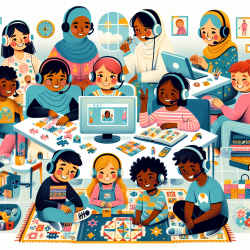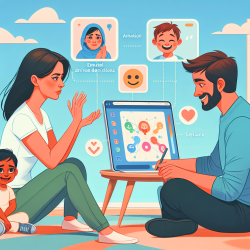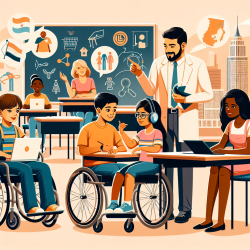In the realm of speech-language pathology, particularly when working with refugee children, it is crucial to integrate a developmental relational approach to enhance their protection and inclusion. This blog aims to distill the findings from the research article titled "Ambivalence towards the Protection of Refugee Children: A Developmental Relational Approach" and provide actionable insights for practitioners.
Understanding Ambivalence and Misrepresentation
The study by Lawrence et al. (2022) identifies a significant issue: ambivalence towards the protection of refugee children. This ambivalence often stems from conflicting priorities, such as national sovereignty versus the rights of refugee children. Misrepresentations of refugee children as passive victims or threats further complicate this issue.
Implementing a Developmental Relational Framework
A developmental relational framework positions refugee children as active participants in their social environments. This approach recognizes that children are not merely passive recipients of adult actions but are co-constructors of their social experiences. Here are key takeaways for practitioners:
- Active Participation: Recognize that refugee children actively engage with their environments. They are not passive victims but are involved in reciprocal interactions that shape their development.
- Contextual Understanding: Consider the specific sociocultural contexts in which these children live. This includes understanding their interactions with family, community, and institutions.
- Agency and Resistance: Acknowledge the agency of refugee children. They often navigate complex social landscapes, sometimes resisting adult arrangements or contributing to community projects.
Practical Applications for Practitioners
To improve outcomes for refugee children, practitioners should:
- Integrate Developmental Insights: Use developmental science to understand how refugee children interact with their environments. This includes recognizing their co-actions in various settings.
- Advocate for Rights: Ensure that refugee children’s rights are upheld. This involves advocating for their inclusion in public services and addressing misrepresentations that hinder their protection.
- Collaborate with Other Professionals: Work with educators, social workers, and community leaders to create a supportive network for refugee children.
Encouraging Further Research
Practitioners are encouraged to delve deeper into the developmental relational approach. Further research can provide more nuanced insights into the interactions of refugee children and how best to support their development and inclusion.
To read the original research paper, please follow this link: Ambivalence towards the Protection of Refugee Children: A Developmental Relational Approach.










